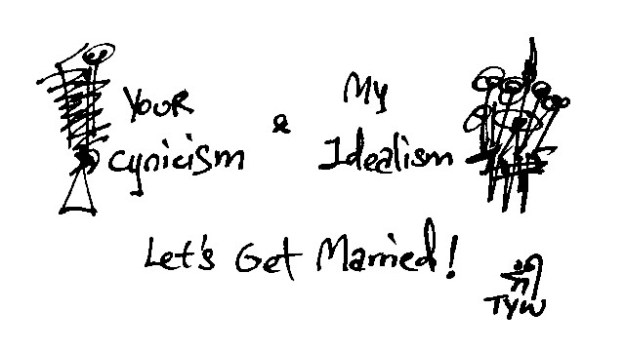
Image by Yew Wei Tan
James King’s account of a year “ripping off the web” at DailyMail.com is the latest in an ongoing drip-drip of uncomfortable revelations about how publishers and broadcasters do their work.
The media may have been the Fourth Estate; but blogs have been performing their role as ‘Estate 4.5′ (as Jane Singer put it) for some time now, opening up publishers, journalists’ and editors’ working practices to public scrutiny on a regular basis.
Two things strike me about King’s account, however.
The Brits are coming
The first is to wonder whether a young UK journalist would ever have written the story that King did. Or, perhaps, why none ever has.
I am assuming, of course, that King is American but the tone of the piece – and the space devoted to it in Gawker – suggests an outrage over the Mail’s online practices which might not have been so pronounced or well-publicised this side of the Atlantic.
We should, of course, be outraged. But the UK perception of journalism is different to that in the US…
How is it different?
How do I find the words which aren’t insulting to either nation’s journalists? One which springs to mind is ‘pride‘. US journalists and journalism students seem much prouder of their profession as a whole than their UK cousins.
What do I mean? Read why King turns down a full-time staff position with benefits and you get some idea:
“As a contractor, I wasn’t expected to attach my name to the articles I was writing, or, rather, rewriting (though freelance writers are allowed to, and often do, use their real names). Had I accepted the full-time staff job, that likely would have changed.
“Other writers had turned down similar offers out of a similar sense of shame.”
I am not sure why UK journalism as a profession does not have the same sense of pride, but it is probably the same reason why the UK does not pledge its allegiance to the flag every morning, or believe in a ‘British Dream’. We are sceptical, cynical buggers.
So is the DailyMail story about a culture clash? Perhaps. Am I generalising indiscriminately and unfairly? Undoubtedly. But bear with me.
Pride vs scepticism
Pride holds itself to high standards, one of the qualities often admired in US reporting.
But it can also be accused of resting on its laurels and credulity. That is the criticism sometimes levelled at American journalism.
Scepticism is a key quality in journalists holding power to account, and one of the qualities often admired in British reporting.
But it can also be turned into cynicism in justifying unethical practice. This is the criticism levelled at DailyMail.com.
In the UK, for example, over the years I’ve seen Martin Belam use diff to highlight the similarities between a local newspaper story and the Mail’s rewrite and Roy Greenslade write about a similar case, this time involving a story which first appeared in the New York Times.
The point of both is the brazenness, not the plagiarism itself. We are sceptical enough to spot it, but cynical in not expecting people to be shocked.
What happens next
As the Mail, Guardian and others expand into US territory, and Buzzfeed, Huffpo and others expand into UK territory, it’s not unreasonable to see both cultures borrowing from each other. In fact, I’m already seeing it happening – and in journalism education too, where you might sometimes spot a very un-British sense of pride in the craft.
As for the Mail in particular? Well, I see three outcomes from this:
- The first possibility is that Google or Facebook change their algorithms to address the sort of processes King describes at DailyMail.com. In 2011 content farms were targeted by Google’s Panda update following increasing concern about their SEO performance and it changed the game overnight.
- The second possibility is that competitors simply get better at doing their jobs. DailyMail.com’s competitive advantage is how it processes content – not on creating it. If other news organisations eat into that competitive advantage by becoming better at packaging their own content (as many already are), then the Mail may have to shift emphasis to creation.
The third possibility? Well, that nothing changes.
But only a cynic would believe in that…

Also, there is a recent article about what young journalists should know. http://www.skedline.com/news/5-things-journalists-know/ #journalism
Pingback: NFJ #35 Sobre o jornalismo copy-paste do Daily Mail, novidades da Holanda e a importância do noticiário local | Farol Jornalismo
unfortunately whats happening is the consolidation of the content farms like WetPaint (which is AOL) and InQuisitr which is HuffPo. The big fish keep getting bigger w/ horrendous content and black hat seo. Google does not enforce their guidelines on the big sites thus they get bigger and more centralized and we all suffer from the lack of diversity in content.